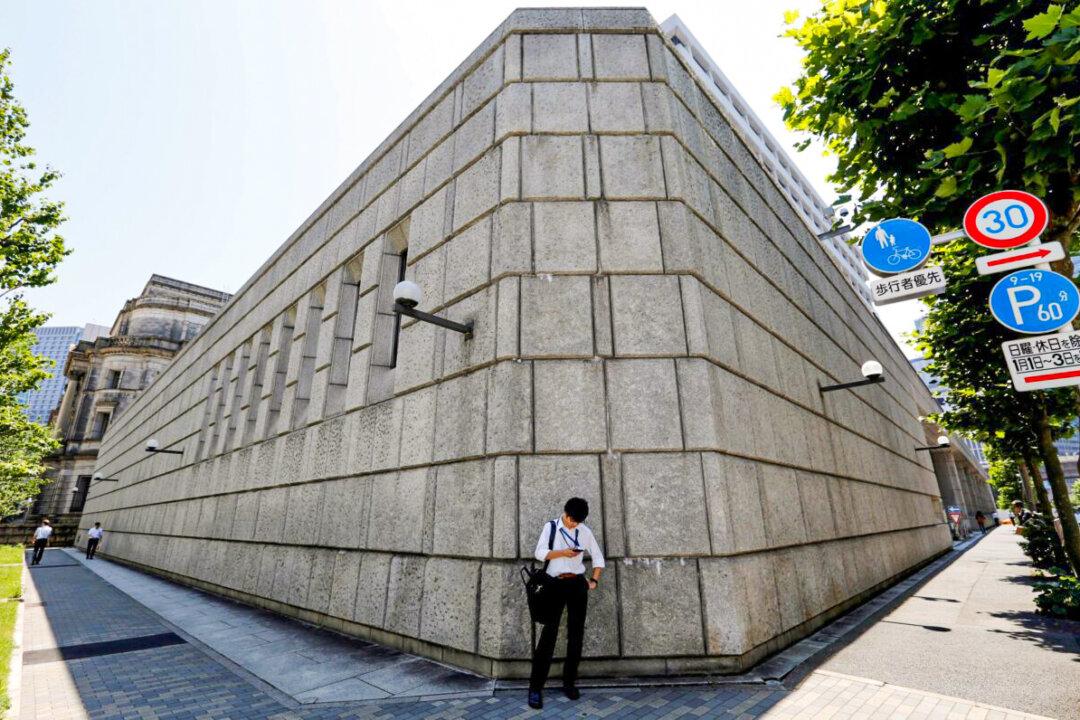TOKYO—Japanese policymakers on Tuesday reaffirmed the Bank of Japan’s (BOJ) commitment to its 2 percent inflation target in a meeting held between the central bank chief and the country’s economy and finance ministers.
The Japanese government and the central bank also agreed to keep in close contact and cooperation, in line with commitments made in a 2013 joint statement, which also laid out the country’s inflation target for the first time.





